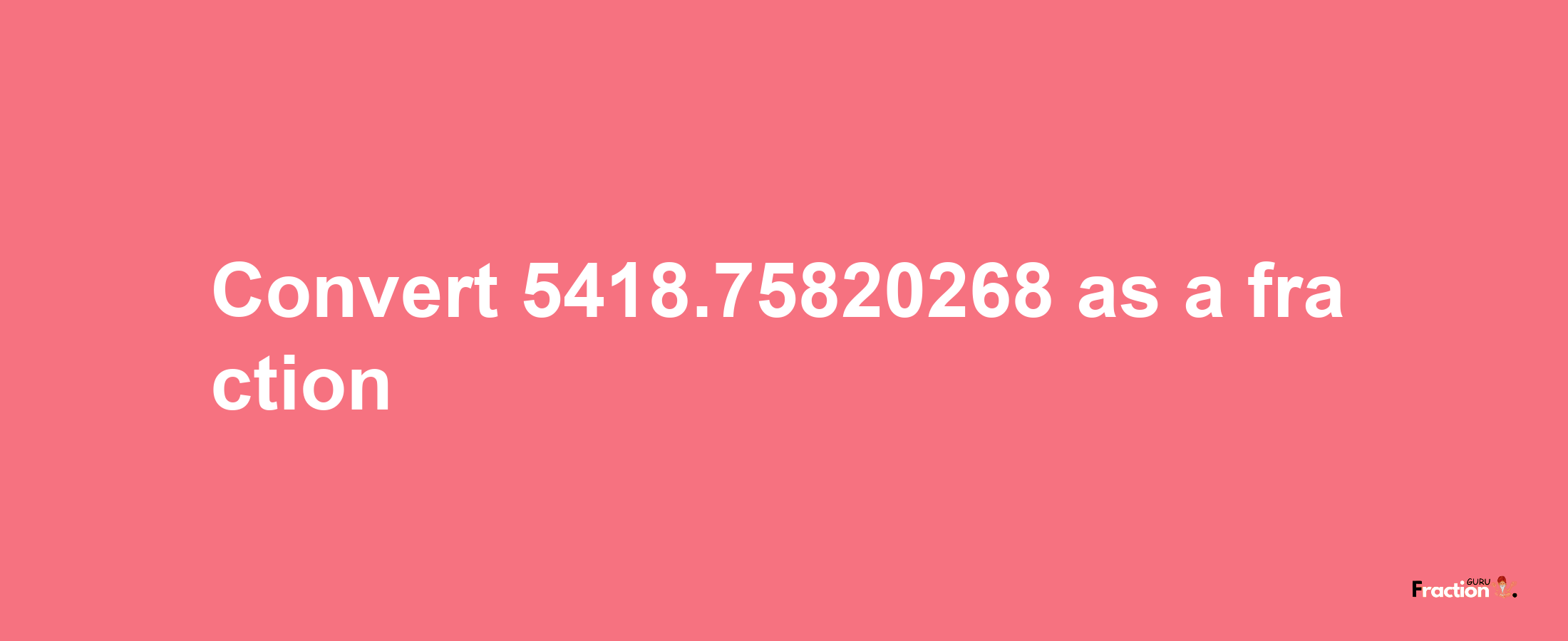Step 1:
The first step to converting 5418.75820268 to a fraction is to re-write 5418.75820268 in the form p/q where p and q are both positive integers. To start with, 5418.75820268 can be written as simply 5418.75820268/1 to technically be written as a fraction.
Step 2:
Next, we will count the number of fractional digits after the decimal point in 5418.75820268, which in this case is 8. For however many digits after the decimal point there are, we will multiply the numerator and denominator of 5418.75820268/1 each by 10 to the power of that many digits. So, in this case, we will multiply the numerator and denominator of 5418.75820268/1 each by 100000000:
Step 3:
Now the last step is to simplify the fraction (if possible) by finding similar factors and cancelling them out, which leads to the following answer for 5418.75820268 as a fraction:
157144/29 / 1


